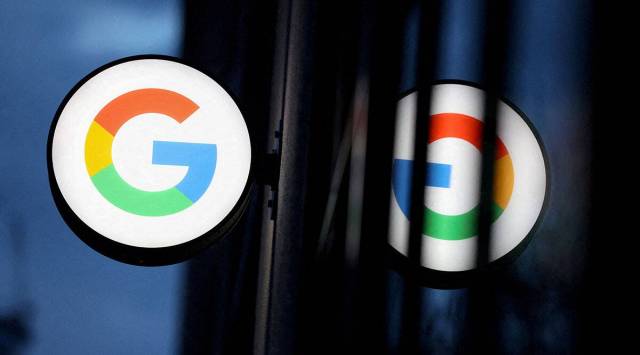In line with CCI ruling, Google makes changes to Android in India: Here’s what will be new
Google has made some changes to Android in line with directive issued by the Competition Commission of India. Here are the changes that the company has announced.
 CCI had imposed a Rs 1337 Cr penalty on Google for anti-competitive practices. (Image credit: Reuters)
CCI had imposed a Rs 1337 Cr penalty on Google for anti-competitive practices. (Image credit: Reuters) In the wake of penalties imposed by the Competition Commission of India (CCI), Google is making some changes to Android in India, in line with directives issued by the competition regulator. Some of the changes are significant and will likely impact Google’s Android arrangements with original equipment manufacturers (OEMs) as well. Google has said it will allow other manufacturers to build forked Android variants– which are different variants without core Google services– in addition to providing Indian users with an option to choose a default search engine when they set up their Android phone. This means that users will no longer have Google as the default search engine option– which is the case right now.
“We take our commitment to comply with local laws and regulations in India seriously. The Competition Commission of India (CCI)’s recent directives for Android and Play require us to make significant changes for India, and today we’ve informed the CCI of how we will be complying with their directives,” wrote Google in a blog spot announcing the changes.
Google’s big Android changes in India: Here are the key points
The key points from Google’s blog post on Android changes in India are as follows:
First is that OEMs will be able to license individual Google apps for pre-installation on their devices. This means OEMs will no longer be forced to pre-install the entire suite of Google apps on their phone, which is the case right now.
Second is that Android users in India will get more customisation options as they can now choose their default search engine via a choice screen. Google says this screen will soon “start to appear when a user sets up a new Android smartphone or tablet in India.” It is not clear if existing Android users will be able to remove Google as the default search engine.
Third, the blog post notes that Google is “updating the Android compatibility requirements to introduce changes for partners to build non-compatible or forked variants.” Forked variants are those that typically come without Google’s Play Services and have their own app store. Amazon’s FireOS is an example of a forked version of Android as is the recent BharOS.
Fourth, and this will be significant for developers is that Google will allow them to offer users “the option to choose an alternative billing system alongside Google Play’s billing system when purchasing in-app digital content.” So far, Google has insisted that app developers use the Play billing system– which also means they have to give a 30 per cent commission to the search giant for any digital purchases. While developers can now offer their own payment system, they will need to pay a ‘reasonable service fee’ to Google.
Fifth is that Google will make it easier to sideload apps on Android, though sideloading has always been possible. The post notes, “We recently made changes to the Android installation flow and auto-updating capability for sideloaded apps and app stores while ensuring users understand the potential security risks.”
While it has made these changes to Android, Google says that it will continue to appeal certain aspects of CCI’s decision. CCI had imposed a provisional penalty of Rs Rs 1,337.76 crore on Google for “abusing its market dominant position” in various categories related to the Android ecosystem. At the time, the search giant said that the CCI’s directions will lead to disruptions and could stall the growth of Android in the country.
The National Company Law Appellate Tribunal (NCLAT) directed the company to pay the fine, but Google filed an appeal against the order. The tribunal rejected the appeal and directed the company to pay 10 per cent of the penalty imposed by CCI. Google then approached the Supreme Court with a plea against the NCLAT order, but it received no relief as the apex court affirmed the NCLAT order.







